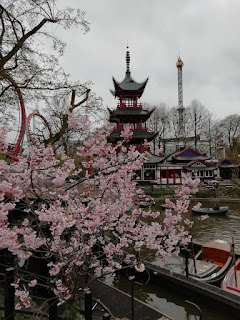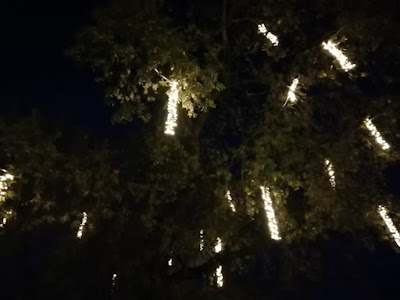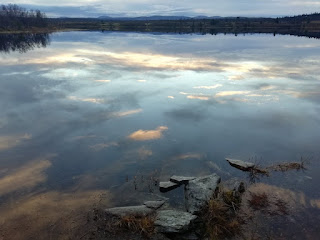Play and expansion of perception – seeing reality as a field of possibility
I recently spent a day in Tivoli in Copenhagen with my family, and it was so much fun. An experience of joy and flow, the whole day was focused on play. Play is presence in the moment, and I noticed an intense quality of presence being there, even standing in line waiting for the next ride was somehow nourishing and magical. W.B. Yeats said: “The world is full of magic things, patiently waiting for our senses to grow sharper.” I think this is what may happen through play - our senses grow sharper, and we notice that the cliff is actually a troll who became stone, and the tree is talking to us, and the frog is a prince waiting to be kissed. Our awareness expand and the ability to perceive becomes more inclusive. We leave our habitual patterns of perceiving reality and open up to new possibilities.
I imagine the
possibilities of transformation are endless when we set out on the journey of
expanding our awareness and ability to notice more. When we change our
perception we change our reality, because what we perceive is what we are able to notice
of reality. Our perception will always be limited because we are historical
creatures limited by time and space. But it is possible to expand our awareness
and ability to perceive, and play is one way to explore this. Play is like a
gateway to notice more of the world.
The subject of
human perception and how it may be limited and even flawed is important in most
spiritual and philosophical traditions. The philosopher Martha Nussbaum defines
perception as “some sort of complex responsiveness to the salient features of
one’s situation.” (Love’s knowledge. Essays on philosophy and literature
p. 55). Perception is then about
receiving and interpreting the present situation cognitively and emotionally.
If you don’t have access to your emotions because you suppress them, then your
perception of reality becomes very limited and there will be a lot you don’t notice.
If you are not conscious about your belief system, then your beliefs will govern
your perception of reality in ways you are not aware of, and you will miss a
lot of what is actually going on in the world.
In the yogic traditions the limits of our perception are called samskaras. The samskaras are mental impressions, recollection, or psychological imprints which colour our perception of reality. Our samskaras make up our conditioning, the way norms and practices of our social and cultural upbringing have shaped us and made us who we think we are. In the Hindu context with belief in reincarnation, our samskaras are a result of many lives. Yoga are practices intending to enhance awareness of our samskaras in order to be less governed by them.
The philosopher Maurice Merleau-Ponty distinguishes between two kinds of perception: Seeing reality as fixated, categorized and defined, and seeing reality as a field of possibility, a field of possibility which is always emerging in ways which are new and maybe surprising. To see reality as a field of possibility and be open to the new and surprising, is challenging, because it may require us to change and perceive differently. It may feel safer to stay in the known and see reality as fixated and in a predictable order. To a child though, its not challenging at all - do you want to play, the child asks, and then the world opens up to new possibilities and more freedom.
Some people have facilitation of play and transformational processes as
a profession. My friend Angela Halvorsen Bogo is a professional
storyteller, singer and clown, retreat and workshop course leader, and
facilitator of Social Presencing Theater. Her
webpage: Homepage |
Transformational Play




Comments
Post a Comment